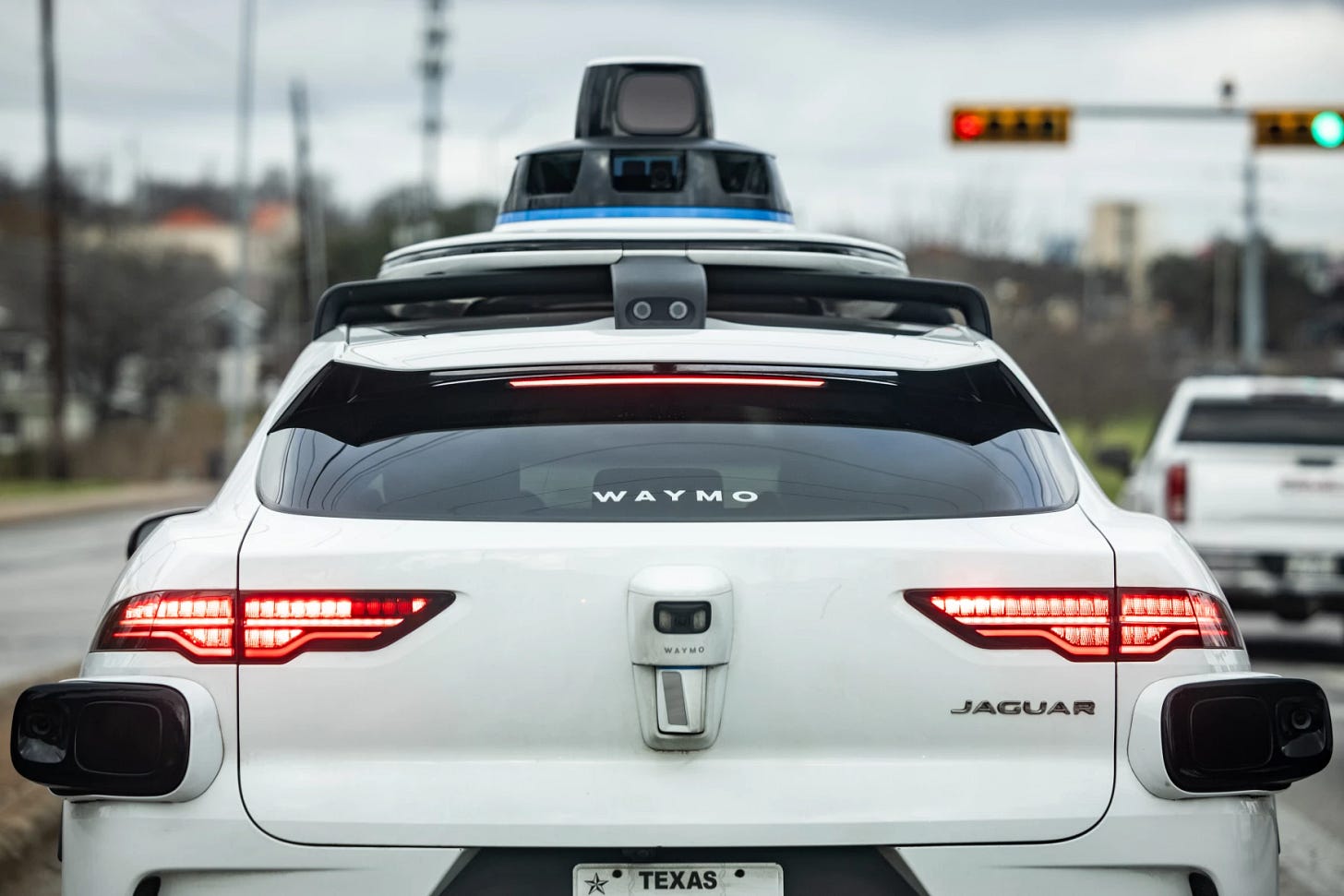The Unremarkable miracle: my first Waymo ride
Had I closed my eyes I would have wondered was it real or was it Memorex
So there I am, sitting in the back seat with my wife but the car has no driver. This had been a long anticipated event so I imagined feeling like Luke Skywalker or something sci-fi-ish. Honestly I'm not sure what was about to happen or how I should feel about it.
As you can see from the video, the car pulls ahead with no hesitation after we get in. My mind is wondering how I can sit there entrusting our fragile human bodies to an algorithmic chauffeur.
Let me back up. Yesterday, after months of seeing these robotic vehicles crawling around our part of Austin like giant white beetles, I finally summoned one through the app. Side note, Waymo was offering free rides so I figured it was time to just 'do it'. The Waymo arrived with gentle exactness, stopping exactly where the pin indicated. No human small talk required, no awkward silence to fill. Just myself, my wife and this four-wheeled computer.
As we pulled away from the curb, I felt a slight but unmistakable tingle in my chest—the same sensation I experienced when I first boarded an airplane as a child. I am doing something humans have dreamed about for a century, I thought. I am in a car that drives itself. For approximately forty-five seconds, I was transfixed. I watched the steering wheel turn on its own, observed the turn signal activate without human intervention, noticed the careful way it yielded to a pedestrian.
And then? Then I got out my phone and started scrolling through my email.
What does it say about us—about me—that the miraculous becomes mundane so quickly? Is this the curse of our species, this relentless adaptability? Or is it perhaps the highest compliment to the engineers who created this technology, that their revolution could feel so natural I hardly noticed it happening?
The car navigated traffic with precise politeness. It never exceeded the speed limit, maintained perfect following distance, and used its turn signal with religious consistency. In other words, it drove like a human. Maybe better. There was something both comforting and unsettling about this mechanical meticulousness—like being in the care of an entity that would never make a mistake due to fatigue or emotion, but might also never understand the social contract of the road, those unspoken negotiations that happen between drivers at four-way stops and merge lanes.
Halfway through the ride, I realized I was experiencing a form of temporal whiplash. Part of me was living in the future, being transported by technology that seemed impossible just years ago. Another part was already taking it for granted, impatient for whatever comes next. Like a child on Christmas afternoon, already bored with the toys they'd desperately wanted that morning.
Is this acceleration of wonder-to-whatever the defining feature of our time? That gap between "How is this possible?" and "What else you got?" seems to shrink with each technological leap forward.
As the Waymo pulled up to our destination with the same automated precision with which it had collected us, I felt an unexpected wave of gratitude. Not just for the ride, but for the glimpse into my own psychology—this strange mixture of awe and indifference that seems to characterize so much of modern life.
I stepped out onto the sidewalk and watched as our driverless chariot pulled away to collect its next passenger. No goodbye, no tip, no human connection at all. Just a problem solved efficiently.
We looked at each other and laughed—that particular laugh that acknowledges something profound has happened, even if we couldn't quite put it into words. And isn't that the real miracle? Not that we created cars that drive themselves, but that we so quickly made peace with the impossible. Perhaps true progress isn't measured by what becomes possible, but by what becomes ordinary enough that we can go back to the things that matter—like squeezing my wife's hand as we walked away, reminded that in this accelerating world of algorithmic wonders, it's still the analog connections that keep us human. Those forty-five seconds of awe were just enough to remind me that I'm living in the future, before I comfortably settled back into the present.
Addendum
Axios Future of Mobility - this was posted after I wrote my piece. I think it adds useful insights I didn’t cover.




How soon will we have articles like this written by computers, for computers?